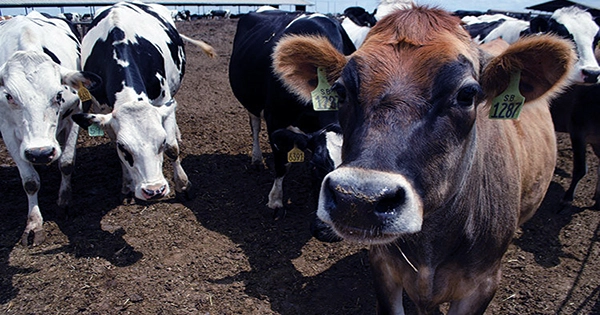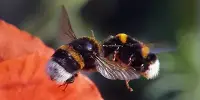Miruku, a food tech business located in New Zealand, is using its molecular farming approach to turn plant cells into micro-factories for creating proteins and other compounds normally produced by animals, such as fats and sugars. Amos Palfreyman, Ira Bing, Harjinder Singh, and Oded Shoseyov, all of whom have experience in either dairy or plant science, launched the firm in 2020. Miruku’s alternative dairy protein technology is now being developed in its labs and greenhouses with corporate and R&D collaborations, with the goal of scaling and implementing it across regions.
According to CEO Palfreyman, the company’s strategy include breeding and engineering plant crops to convert their cells into dairy proteins. This is in contrast to rivals that use techniques such as precise fermentation, which brews dairy inside fermentation chambers and recruiting animal cells from outside the animal to manufacture dairy building blocks in culture chambers. Miruku distinguishes itself by developing novel plant varieties that use the sun’s energy to generate actual dairy building blocks directly in the plants. In this way, the firm is generating proteins more effectively than cows, removing the cow’s function from the equation and reducing dependency on animal agriculture, as well as the resulting harm to water, land, and the environment.
“Not only will our protein constituents generate dairy dishes that taste and smell like real dairy, but they will also be nutritional counterparts to dairy,” he added. “They’ll operate like genuine dairy in the production and baking of delectable foods like cheesecake or a beautiful pecorino cheese, and they’ll help build and mend your body with the same amino acid building blocks that your body requires after you’ve experienced and digested a scrumptious cheese sandwich.” One of the challenges in food tech is producing enough proteins, feedstock, or scaffolding to scale the business, and Palfreyman noted that “the challenge of programming a plant to express mammalian proteins in a way that retains their structure and function is actually quite a technical challenge” for Miruku.
He said that scaling the plants is simple: after creating a plant that produces the desired proteins, you just sow the seeds to scale production, whether it’s a few hundred in a greenhouse or hundreds of thousands in a field. The engineering and breeding for specific features, which frequently necessitates a trade-off between energy expenditure and expression levels, gets a little more challenging. Palfreyman, on the other hand, believes Miruku’s combination of computational biology and techno-economic studies to estimate optimum expression levels will solve that aspect of the scalability equation.
The egotistical high, Outsized confidence and ego, enable entrepreneurs to take great risks to establish and run with their idea, but also the quality that can cause a handful of them to lose their sense of right and wrong. With their moral compass adrift, they cheat to get ahead. In extreme situations, founders who are high on ego get addicted to dishonesty. They picture themselves as the next unicorn’s CEO. They spew a barrage of lies in favor of their made-up world. These folks are caught in a dream world, full of arrogance. The deceit spiraled out of control, as we witnessed with Theranos’ ascent and fall, until, ultimately, the founder was caught in the lie.
The firm is still in development, but Palfreyman expects Miruku’s proteins to be employed in the commercial market in two to three years. However, prototypes and proofs of concept will be available sooner. He anticipates the first product to be a collaboration with an established food firm to supply a protein component that will be rolled out by the food company. Nonetheless, Palfreyman advertises Miruku as Asia Pacific’s first molecular farming dairy firm. It joins other firms across the world that are tackling animal-free technologies to take on a $500 billion dairy sector, such as Nobell Foods, which is also undertaking molecular dairy farming, NotCo, Climax Foods, and Perfect Day.
In the past several years, we’ve seen a lot of companies obtain venture capital money. Miruku was self-funded for the first 18 months by its creators and has since received $2.4 million in startup capital. Movac spearheaded the investment, which also included Better Bite Ventures, Ahimsa Investments, and the Aspire Fund.
After finding the “perfect partners” to help link the firm to clients and build on milestones for the next round, which Palfreyman estimates will take place in 2023, the company will be able to “really scale.” The increased funds will be used to hire more technical professionals, form partnerships, and accelerate development activities. Miruku’s staff has already quadrupled this year, and Palfreyman expects the company to grow at a similar rate each year.
















